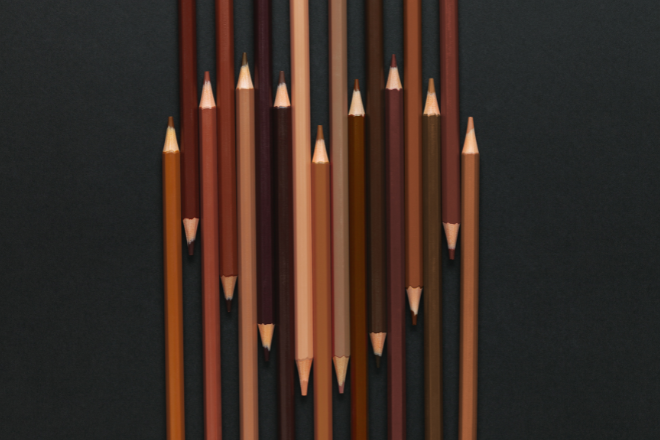Peter and Nour from University College London (UCL) took part in the 2021-22 UCL Institute of Healthcare Engineering’s Impact Fellowship Scheme which aims to enhance the impact of participants research through building knowledge, skills, and experience in engaging with a diverse range of stakeholders. As part of this programme, they had a six-month placement with Co-Production Collective working on some of our key projects including the Value of Co-production Research project and a project that explored the co-production of academic-policy engagement in collaboration with UCL Public Policy and Capabilities in Academic Policy Engagement (CAPE).
In this blog Peter and Nour share their experiences of co-production, what they learnt from working with Co-Production Collective and how they feel this will impact their work going forward.

Peter
My first in depth introduction to the world of co-production came when Niccola from the Collective gave a presentation as part of our UCL Institute of Healthcare Engineering’s Impact Fellowship programme. I had heard about co-production loosely before, when I was a research fellow working on rehabilitation robotics and virtual reality at the Royal National Orthopaedic Hospital (RNOH), Stanmore UCL campus and had previously worked with people with lived experience of conditions the RNOH specialises in. As a result, I had an interest in not only working with various populations using the system I produced as part of my research, but also in involving them more closely in the research process.
While I was taking part in the Impact Fellowship programme an opportunity to work on an upcoming research project looking at the value of co-production with Co-Production Collective came up. After a few meetings with Niccola, we both decided it was a good fit and along with Nour we started work on the proposed project.
The ‘Value of Co-production’ research project was made up of several strands: a rapid critical review of the research evidence of the value of co-production, an online survey, a review of nine pilot projects that Co-Production Collective had done, and a community reporting project where people shared their stories of co-production via storytelling. Each of these strands had its own working group and there was also an overarching working group that linked up all of the strands of the project, bringing it together as a whole.
Niccola asked us if we would work on several strands of the project as well as be part of the working group that co-produced the whole project. As Nour was also working with me we decided to split up the strands to focus on, whilst maintaining awareness of what was happening and contributing to the other strands. I ended up working on the review of the pilot projects and rapid review team as well as being on the overarching working group for the whole project. As a result, we worked with not only people from Co-Production Collective but also partner organisations from around the UK (People’s Voice Media, Gobby and Big Lemon), other parts of UCL as well as members of the Co-Production Collective community with living or lived experience. This gave us the opportunity to put into practice what we had learnt from the Impact Fellowship Programme, working with people from a wide background and skills.
From Spring 2021 to Autumn 2022 we collectively worked to answer the question ‘What is the value of co-production?’ using workshops, focus groups, previous project reports and meetings. Over the course of this project, I began to appreciate how needed and useful our research was in proving the value of co-production in the areas of research, policy making and service development for all involved especially those with lived experience who benefit from being part of it. For me personally, being part of this co-produced research project was a process and experience that has provided me with the tools to implement in my day to day work and beyond.
During the project I was hired by UCL as a lecturer (teaching) still based at the Royal National Orthopaedic Hospital, which has given me opportunities to put into practice what I learnt on the fellowship and whilst working with Co-Production Collective. I am now on my department’s Athena Swan panel to promote equality and I believe what I learned on the ‘Value of Co-Production’ project will help me in this role. I am also setting up a flexible framework within my department to promote Patient and Public Involvement (PPI) and Impact (working with external facing groups such as research panels and government science schemes). This builds on what I learnt on the from the Impact Fellowship Programme and my research with working with upper limb amputees who suffer from Phantom Limb Pain as well as my involvement with the hospital’s research Patient and Public Involvement (PPI) panel.
I have always said the best part of my job is working with others and hearing their experiences. During the past year I have taken the skills I have learnt and have been lucky to have been given the opportunity to work with a team of dedicated people who have not only worked to achieve the goal of completing a project but have put into perspective exactly what it means to work in a co-productive manner. Something I will always strive to include in my work now and going forward. Working and involving those with lived experiences in the research process, can be difficult at times, but the positives far out ways the negatives. They offer a richness to work that no other ways of working other than in a co-productive manner can achieve. I would like to thank Niccola for the opportunity to allow me to have such a great experience, to Nour for working alongside me and to the members of the Value of Co-Production project and those who took part in associated activities.
.jpg)
Nour
Joining Co-Production Collective has been a great learning experience for me. I learned about the Collective when I was taking part in the Impact Fellowship scheme, and I thought it was a great opportunity to apply what I’ve learnt during the Fellowship about various types of engagement and how to measure the impact of our research.
During my placement I worked, alongside Peter, on a strand of the ‘Value of Co-Production’ research project that reviewed the nine pilot projects that Co-Production Collective had done in 2018-20 and was part of the working group for the project. I also worked on another project (funded by quality-related research funding (QR funding) from the Research England Strategic Priorities Fund and in collaboration with UCL Public Policy and Capabilities in Academic Policy Engagement (CAPE) that looked at academic-policy engagement. While working on the pilot studies and the Value of Co-production project helped me learn a lot about co-production, I’d say the policy engagement project was the most challenging for me as it explored the co-production of academic-policy engagement. Through a series of three workshops we brought together people from academia and policy with the aim of co-producing a set of principles about how to achieve co-production between policy and academia. I learnt a lot from this project about working with people from different backgrounds and mentalities, trying to find a common ground between all participants to achieve our goal.
The policy landscape is complex and many academics find it hard to navigate and can feel uncomfortable in policy spaces, whilst people in public policy, find academic structures confusing and the research jargon hard to engage with. Bringing people from both areas together in one place brought all these issues to the surface and they were able to discuss and navigate these challenges and try to find solutions. By the end of the workshops, we realised that it would not be easy or even possible to develop a fixed set of principles within the time frame. So instead, we created a working document together that highlighted the main elements and values that we thought could help promote the co-production of academic-policy engagement. For me the workshops were a great opportunity to bring people together and get the conversation started. The people we worked with seemed enthusiastic to keep moving forward towards this output. So from a tricky start this was progress indeed. We hope the working document we created with participants will continue to be developed by those involved.
I feel that this project was a real example of how to do co-production because it involved continuous learning and improvement, as we designed each workshop in light of the discussions and the feedback from the previous session. To me co-production is not about having a fixed goal or expecting a certain result, it’s about exploring a topic and seeing where the discussion leads based on the input from all the participants. As a result, as well as co-creating our working document, people actually connected together, learned about each other’s viewpoints and discussed collaborations. The impact of this was that everyone involved felt valued and this is what co-production is about!
Before I joined Co-Production Collective, I didn’t really know much about co-production especially as my PhD research focuses on early stages of drug development, so I didn’t think it was really applicable to my work. But now from working on these different projects, I have realised that co-production is a mind-set. It’s about creating a culture change and I think there are different ways in which we can apply co-production at different levels. All of which depend on being open to different points of view, seeing the value in them and being flexible while having a vision. I look forward to seeing how this influences my work going forward.
If you would like to find out more about Co-Production Collective please get in touch.



.jpg)


.png)
.png)
.png)
.png)
.png)


